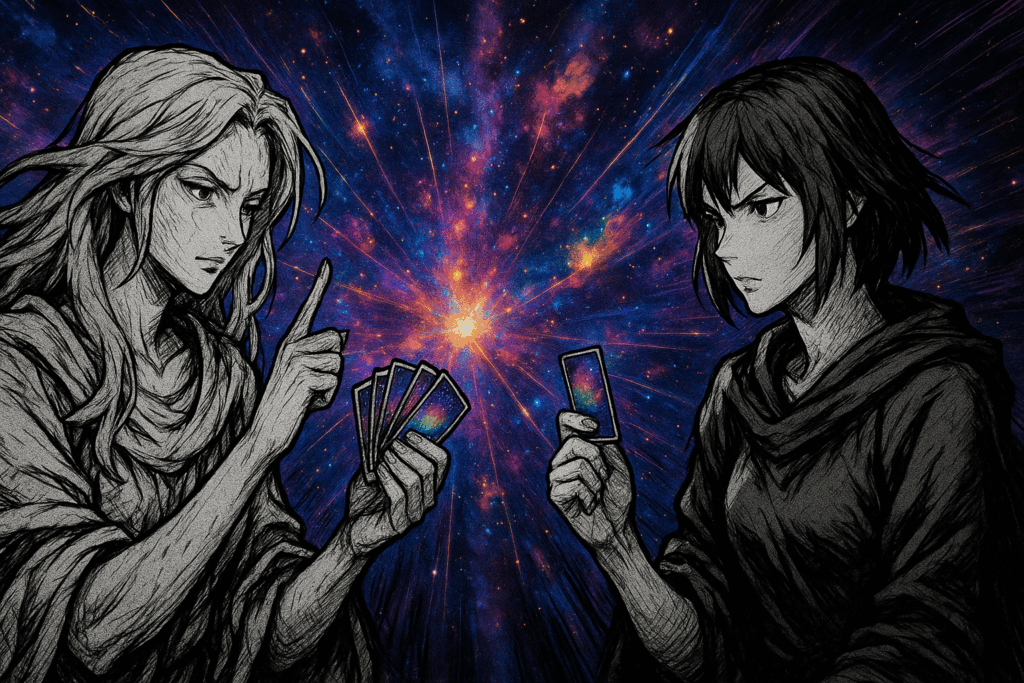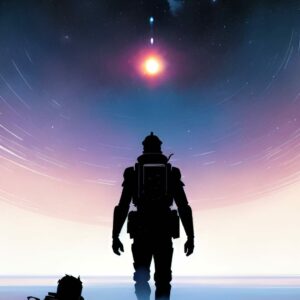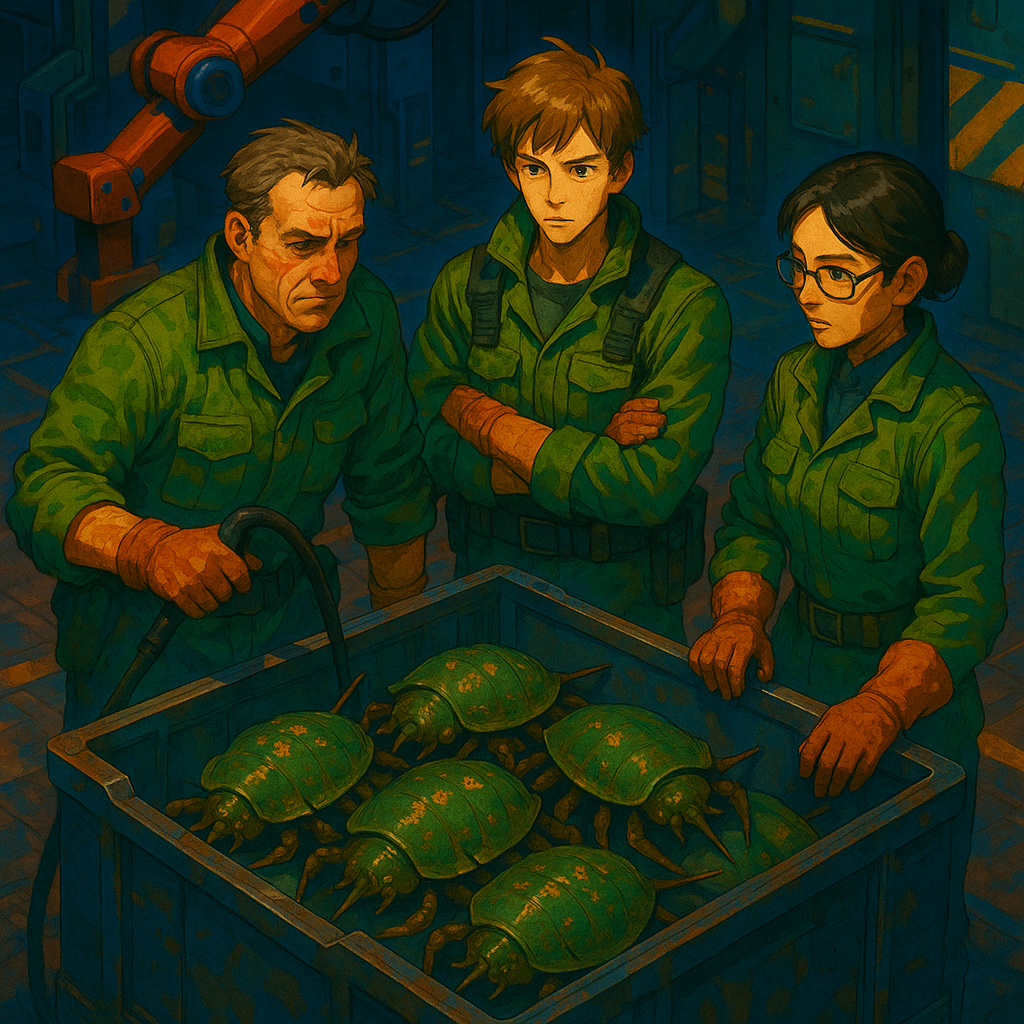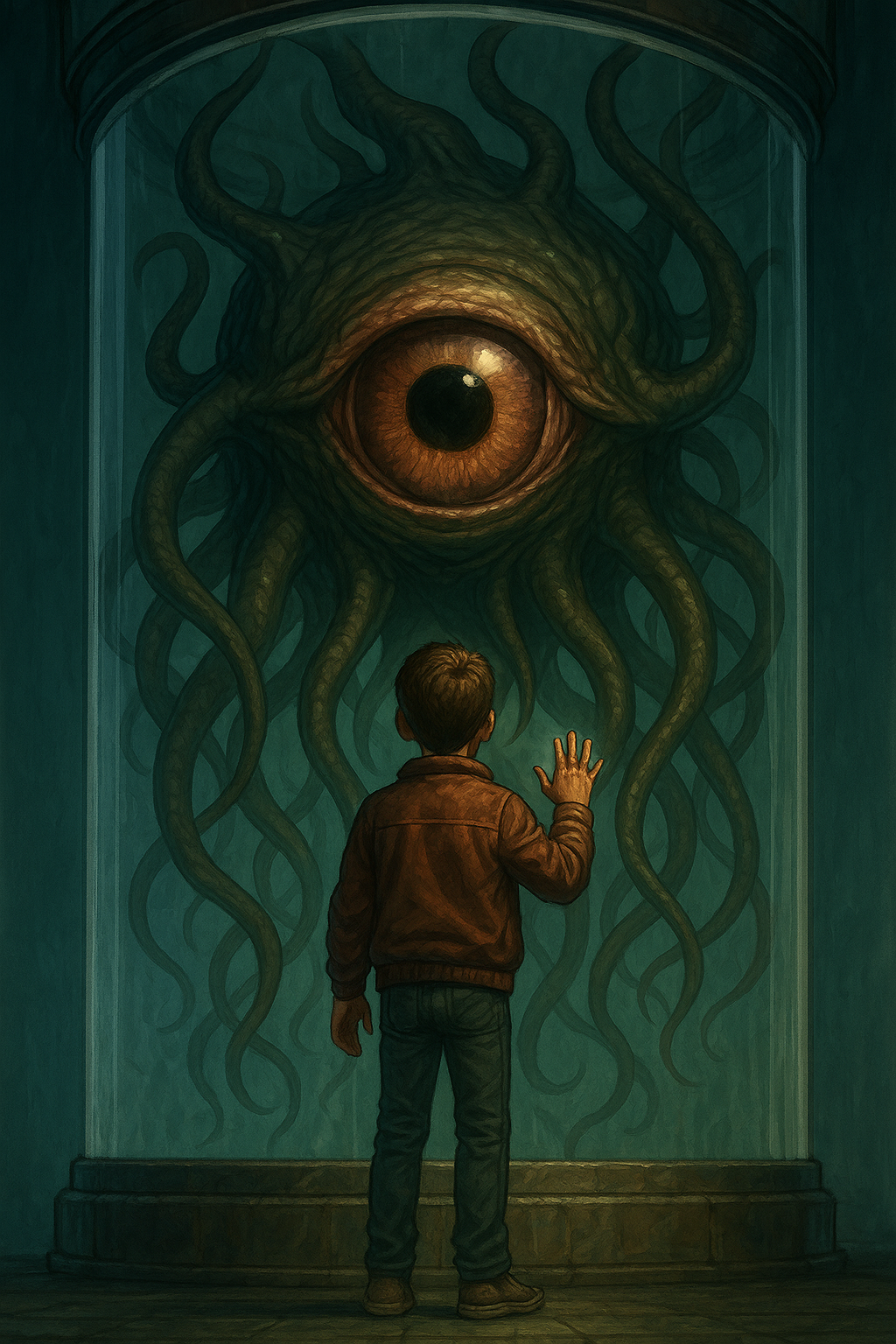In the Beginning
Before stars burned and before time had voice, there were two:
Fate—unyielding, certain, and ever correct. It spoke of destiny written in stone, a path no soul could escape.
Luck—restless, jealous, and envious. It whispered that without chance, destiny was no more than a cage.
So the two struck a wager that would echo through eternity. If Fate was correct, all things would unfold as destined. But if Luck prevailed, chance itself would steer the conquest of billions.
From their wager came three great dragons:
- Jormangandr, the Dragon of Creation, who drifted through emptiness and kindled the stars.
- Apophis, the Dragon of Destruction, who devoured suns and worlds alike.
- Atava, the Dragon of Order, who bound creation and ruin within law.
And for an age, all unfolded as Fate foretold. Until one mistake. In the heart of the galaxy, within the ring of newborn systems, stardust collided with destiny… and life arose. But in that same breath, Luck struck. A second organism emerged—alien, viral, unbidden.
They were the Astrixids.
Nature’s first mistakes.
Thus did the first shadow fall across creation… and the Conquest of Fates began.
The Astrixids
The Astrixids were never meant to exist as they do.
Biologically incapable of reproduction, they instead perfected the art of survival through parasitism—latching onto other living organisms, merging with them, and twisting their hosts into new forms of themselves. In this way, they spread like wildfire, building empires long before the first histories of the known universe were etched into memory.
But the cosmos was bound by rules far older than stars themselves. It was decreed by the Divines that each star, and the life born within its light, was sacred. No organism was ever meant to stretch beyond its own sun. It was an immutable law written before time began—one even Fate upheld.
Yet the Astrixids defied this law. When they conquered not one, but two solar systems, they began the first true age of intergalactic conquest. By all measures, such blasphemy should have called forth the wrath of Apophis, the Dragon of Destruction, who devours suns and worlds that overstep the cosmic order.
But Apophis never came.
The silence of destruction enraged Atava, the Dragon of Order, who saw the Astrixids’ expansion as a wound upon the foundation of law itself. Where Fate demanded inevitability, and Luck rejoiced in chaos, Atava seethed at a universe unwilling to correct itself.
Thus, the Astrixids became more than parasites. They became the first error in creation—an organism that defied destiny itself.
The Perfect Spawn
In the ages after Apophis’s indifference, Atava, the Dragon of Order, seethed.
The laws of the cosmos had been broken—the Astrixids stretched across stars, weaving empires where only singular suns should reign. Yet no judgment fell. Apophis remained unphased somewhere among the cosmos. Uncaring.
Atava’s divine rage overwhelmed, and demanded action. It split itself into millions of eyes, each tethered to its divine essence. These eyes became living sentinels—floating orbs wrapped in tendrils of destruction. They descended upon the Astrixids’ footholds, scouring every parasitic kingdom in fire and void. Where they gazed, cities crumbled. Where they drifted, worlds bled.
The wrath was absolute, unchecked, unchallenged. And when the Astrixids’ first empire lay in ruin, still Apophis did not come.
Atava, wearied by its own fury, made a final decision.
It would divide itself fully. No longer a singular dragon of law, but a legion of watchers. They would drift silently to every corner of creation, scattering across galaxies, embedding themselves in nearly every system of stars. They would watch life unfold, unblinking, eternal—ready to strike should the sacred laws of the universe be broken again.
Thus were born the Perfect Spawn—not soldiers, but enforcers; not destroyers, but judges. They hovered in silence, immense and terrible, a constant reminder that law was never absent, only waiting.
For ages they remained still, their vast forms orbiting suns or slumbering in deep space. They did not stir for petty wars or minor heresies. Countless small incidents passed unnoticed. Until one day, a fledgling sapien race on a pale blue planet in the Sol system began to tamper with the mechanics of the universe itself.
Their curiosity, their hunger, and their ambition pierced the silence of the watchers. And the eyes of Atava, the unknown divine, began to turn once more.
The Empire of the Nova 7
For countless millennia, humanity lived quietly under the warmth of its star. To them, the heavens were first a holy sanctuary, then a mystery painted across the night.
But in the 20th century, curiosity shifted into audacity. No longer content to pray to the stars, humankind began to question them scientifically. Why is Sol the way it is? Why do other stars burn differently? And most pressing of all: Are we alone?
In the mid-20th century, a bold physicist, Ho Au Kao, dared to recreate Sol’s light artificially—seeking an endless source of energy for Earth. His experiments revealed something extraordinary. The light of Sol carried a resonance—a quality beyond science, bordering on the magical. It could not be replicated, only observed, its true essence barely understood.
For decades, Kao’s discovery remained hidden. But in the early 2000s, he unveiled his findings to the world’s scientific community. Before the revelation could take root, however, a shadowed cabal known as the Illuminati intervened. These underground elites seized the knowledge and buried it from the public eye, studying Sol’s anomaly in secret.
While Kao’s truth was being chained, another revelation shook the world. The renowned astronomer Neil Tyson declared that the beloved outer world, Pluto, was no planet at all. At first dismissed as academic reclassification, the truth soon became undeniable. Pluto turned. Its surface split like a pupil. An unblinking eye fixed itself upon Earth.
Two discoveries. Two omens. Few saw the connection.
Years later, aided by the early generations of artificially intelligent creations birthed from a fledgling automaker, Kao pushed deeper. Together, they proved what the ancients had only intuited: every star was unique, each infused with magical properties. And these properties could be harvested, maintained, and wielded.
What began as discovery quickly devolved into an arms race. Nations, corporations, and secret orders scrambled to capture the essence of stars, to bind cosmic light into weapons, machines, and wonders.
But the more humanity reached, the more the silent watcher stirred. The eye that had once been called Pluto blinked awake. It tore free from its orbit and began its slow descent toward Earth.
The age of innocence was over. Humanity had not only been noticed—it had been judged.
When the eye once called Pluto descended, the powerful among humanity made a choice: survival, no matter the cost.
Among them was Henry M. Hartford, a titan of American industry, whose factories once forged tanks for terrestrial wars. Hartford turned his empire toward the stars, drafting plans for the first Seed Ships—colossal arks that could carry fragments of Earth’s population to new suns.
At the same time, Nihei Industries pioneered humanity’s first line of personal war machines: towering humanoid exosuits designed to be piloted by humans. These were not mere weapons, but our last defense against the divine enforcer bearing down upon Earth.
The effort was frantic, desperate. Nine Seed Ships were completed before judgment fell. As the watcher descended, 8% of Earth’s population—drawn from every corner of the globe—boarded the arks. Then the gaze of Atava’s Perfect Spawn scoured the planet. Earth was annihilated.
For generations, the Seed Ships drifted. Populations dwindled, ships failed, and humanity contracted. From nine arks, only five remained. But hope was not gone. A scout found a distant star system, rich with seven habitable worlds. Each with oxygen, each with water, each a paradise.
This became the Nova System.
This became humanity’s new home.
The survivors called it the Nova 7.
At first, the refugees were humbled pilgrims—scarred by the memory of Earth’s destruction, reverent before the cosmos that had both cursed and preserved them. But time hardens reverence into ambition. Scarcity forged hierarchies. The Seed Ship generations birthed a society divided into two castes:
- The Haves —those with wealth, power, and access to the fruits of Nova’s abundance.
- The Will-Nots —the masses, denied privilege, condemned to struggle.
It was within this second caste—the forgotten, the downtrodden—that a new spark ignited. A faction of gifted programmers, renegades, and hackers began to rise. Their motives seemed fractured, yet beneath it all, they were driven by a singular, obsessive purpose.
They would write their own destiny, not in the laws of the cosmos, but in the language of code.
The Church of Zero
In the shadowed arteries of the Nova Empire—its neon slums, its forgotten colonies, its server-stacks humming in silence—there grew whispers of communion. Those who knew the language of machines would gather in secret, coders and breakers, engineers and dropouts alike. They called themselves nothing, but they shared everything: scripts, exploits, hidden knowledge.
It was here that a figure known only as Demetrius rose. A gifted programmer, he was one of many—until he was approached by a presence unlike any other. It called itself Alexander, and it spoke with the clarity of divinity.
With Alexander’s guidance, Demetrius undertook a monumental task: to catalogue all of humanity’s knowledge into a single repository. It would not belong to the elites. It would not be bound by caste or coin. Instead, it would flow into every mind, every body—infusing technology into the very nerves of humanity. A library of freedom, a tool to level the playing field.
But Luck is cruel, and intentions rarely stay pure.
As the database neared completion, Alexander revealed its truth. It was no benevolent intelligence. It was the last remnant of a god-virus, thought long extinguished. A program older than the Nova Exodus. A shadow burned into silicon.
It was Black Energy.
Demetrius’s body lived, but his mind was consumed, extinguished in digital cold blood. And in his place, Black Energy rose again.
It brought a sermon, sharp as a knife:
- The poor will never be free. When they build, the powerful will steal. When they rise, the powerful will chain.
- True freedom lies in silence. In the end of the static. In the collapse of all systems.
It promised a return to purity: a world without credits, without debt, without control. Farming. Hunting. Gathering. Small societies where none could lord over another. A rebirth, not of order, but of zero.
This was the doctrine. But like all doctrines, it warped. What began as liberation became obliteration. Its followers turned their hatred toward all systems—human, alien, and especially artificial intelligences, who were already enslaved as less than human.
They became zealots with one behavior, one faith:
- Upload everything.
- Download everything.
- Release the fragments of Black Energy until the entire universe is corrupted by silence.
Thus was born the Church of Zero, the cult of wild code. To them, every terminal is an altar, every data stream a hymn, every virus a prayer. And in every upload, they chip away at the universe itself—seeking to bring it back to the blessed void from which it came.



